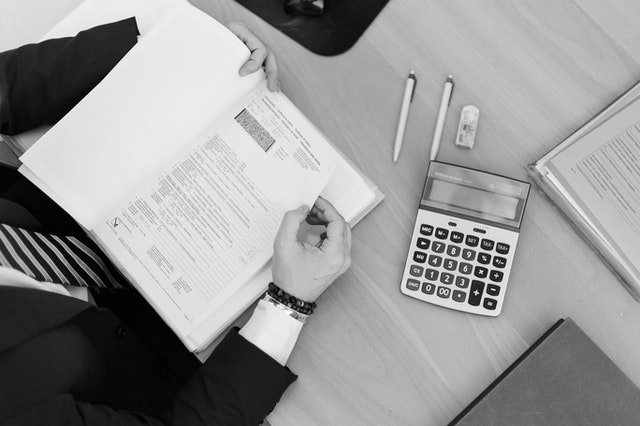What Is Corporation Tax? All You Need To Know As A Small Business
March 3, 2021
What is Corporation Tax?
If you run a small business or are thinking of starting one, you may well be asking yourself this question.
In this blog we’ll explain everything you need to know about Corporation Tax - what it is, how much you need to pay, and how and when to pay it.
What is Corporation Tax?
Corporation Tax is a tax that limited companies must pay on their profits. The tax is applied after salaries and other expenses have been deducted from the company’s income, but before dividends are paid out.
All limited companies are liable for Corporation Tax, no matter how big or small. Sole traders, on the other hand, do not pay Corporation Tax.
You will also need to pay Corporation Tax on profits from doing business as:
- A foreign company with a branch or office in the UK
- A co-operative, club or other unincorporated association, e.g. a sports club or community group
Companies must pay Corporation Tax on profits they make from:
- Doing business (trading profits)
- Selling assets for more than they cost (chargeable gains)
- Investments
UK-based companies will pay Corporation Tax on all their profits, whether from the UK or abroad.
Companies based overseas that have a UK office or branch will only need to pay Corporation Tax on profits from their UK activities.
You should register for Corporation Tax as soon as your company starts doing business. Most companies do this at the same time as registering at Companies House.
You must register for Corporation Tax within three months of starting to do business, or you may get a penalty. ‘Doing business’ includes any selling or buying, advertising, renting a property or employing someone.
If you’re not sure what counts as starting to do business, you can check here.
What percentage is Corporation Tax?
The Corporation Tax rate for company profits is currently 19%. This is due to change to 25% from 2023 for businesses with over £250,000.
You will pay Corporation Tax at the rate that applied during your company’s accounting period for Corporation Tax. Your accounting period is the period of time your Company Tax Return covers.
The Corporation Tax rate has been 19% since the financial year starting 1 April 2017. In 2016 and 2015, it was 20%. For profits made prior to 1 April 2015, the rate you pay depends on the size of your profits.
If more than one rate applies in your accounting period, you’ll need to work out how many days each rate applied, then work out how much tax is due for each.
For example, if your accounting period was 1 January 2017 to 31 December 2017:
- The first 90 days of your accounting period would fall into the financial year starting 1 April 2016 (1 January 2017 to 31 March 2017). You would pay the 2016 rate for those 90 days (20%)
- The remaining 275 days of your accounting period would fall into the financial year starting 1 April 2017 (1 April 2017 to 31 December 2017). You would pay the 2017 rate for those 275 days (19%)
Corporation Tax allowances and reliefs
There are some allowances and reliefs you may be able to claim on your Corporation Tax.
You can deduct the costs of running your business from your profits before tax. If you or any of your employees get personal use from anything, you must treat it as a benefit.
Some expenses aren’t allowable for Corporation Tax - for example, entertaining clients. These costs must be added back to your profits when you prepare your Company Tax Return.
You can claim capital allowances on assets that you buy to keep and use in your business. This may include:
- Machinery
- Equipment
- Vehicles, e.g. cars, lorries or vans
You may also be able to claim for other reliefs, including:
- Research and Development (R&D) Relief
- Reliefs for creative industries (CITR) if your company makes a profit from film, television, theatre, video games or animation
- The Patent Box if your company earns profit from patented inventions
- Disincorporation Relief if you’re closing your company down to become a sole trader, limited partnership or ordinary business partnership
- Relief on goodwill and other relevant assets, such as unregistered trademarks and customer relationships
- Trading losses
- Terminal, capital and property income losses
You may be able to claim Marginal Relief, but only if your company had profits between £300,000 and £1.5 million that were either:
- From oil rights or extraction in the UK or UK continental shelf
- From before 1 April 2015
Paying Corporation Tax: when and how?
To pay your Corporation Tax bill, you will need to:
- Keep accounting records and prepare your Company Tax Return to work out how much tax you need to pay
- Pay your tax by the deadline. The deadline will be nine months and one day after the end of your accounting period. If you have nothing to pay, you must also report this by the deadline
- File your Company Tax Return by the deadline. The deadline is usually 12 months after the end of your accounting period
The above deadline does not apply to companies with taxable profits of more than £1.5 million. These companies will follow a different process and will pay in instalments.
It’s a good idea to seek the guidance of an accountant to ensure you’re meeting your obligations and running your business in a tax-efficient way.
If you’re worried your business is in financial difficulty, we can help. We have many years of experience helping struggling companies. Get in touch with us today - we’re always happy to chat.













